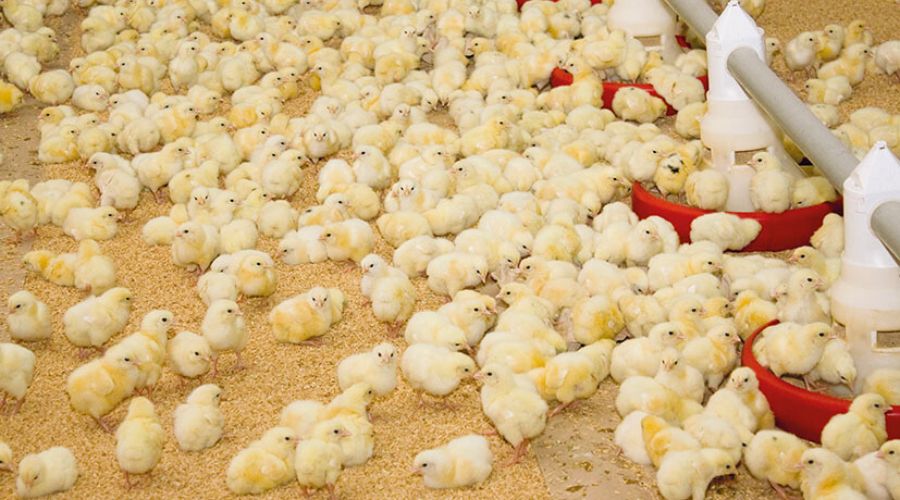Top tips to protect your flock this winter
20th September 2024
Poultry vet Sara Perez outlines some of the key health issues currently posing a risk to UK flocks.

Whilst the past year has so far been a quieter one for avian influenza (AI), it’s important not to take your eye off the ball, warns Sara Perez, clinical director at Poultry Health Services vets (PHS).
Cases of H5N1 have been reported in wild birds in Europe this summer, meaning UK poultry will be at risk when birds migrate for the winter. Additionally, young birds that hatched last year may be more vulnerable if thaey have not been exposed to the virus.
Biosecurity is also crucial for preventing other important infectious diseases such as Salmonellosis, which can be even more financially devastating than AI.
Attention to detail
Whilst most farms will employ good biosecurity measures, it’s often the attention to detail that needs improvement, she continues. When everyone’s busy it can be easy for visitors to slip through the net without adhering to the full biosecurity protocols, so it’s important to make it as easy as possible.
As well as minimising visitors as much as possible, she recommends having a designated member of staff – ideally two to cover holidays – to meet and greet visitors to the farm and accompany them at all times.
When visitors must visit the farm (e.g. tradespeople for essential repairs, or feed lorries), ask them some questions in advance, such as: ‘have you had any respiratory or gastrointestinal symptoms in the last 24 hours?’, and ‘which farms have you visited in the past 24 hours?’
Visitors should be provided with overshoes, overalls, mask, and gloves before entering the farm, and a barrier at the entrance of the farm will prevent vehicles gaining access before biosecurity protocols can be carried out. A visitors’ book should also be easily accessible in a prominent place on arrival.
Whilst there were no avian flu cases in the UK at the time of writing, this doesn’t mean we are free of all diseases, Sara says. As well as AI, endemic diseases can also be spread by visitors to the farm, so it’s good practice to disinfect the wheels of all vehicles arriving on farm.
Where possible, visitors should leave their vehicle outside the farm and walk in wearing PPE. On some newer farms, feed lorries do not need to enter the farm – they wait at the perimeter and pipes can be extended to deliver feed into the feed bins.
This is the best procedure but clearly will not be possible for all farms. So the most practical solution is an inexpensive wheel sprayer – a knapsack will do.
Other emerging diseases
Salmonella typhimurium and Salmonella enteritidis are a particular concern for poultry businesses. Unlike with AI, there is no government compensation so the financial consequences can be devastating.
Birds will be asymptomatic but eggs and meat from infected birds cannot be sold as fresh and so birds are normally culled on site to avoid further spread of the bacteria. Unless you have insurance, you’re looking at losses of £200,000–300,000 which can be tantamount to bankruptcy for some producers.
Transmissible viral proventriculitis (TVP) is also being seen in broilers currently and impacts growth and performance as food cannot be properly digested.
It often occurs at sites with a very short turnaround between flock placements, where perhaps cleaning and disinfection procedures have not been performed at the usual standards. The minimum turnaround time should be seven days, as all litter must be removed and the shed cleaned and disinfected twice, with drying time in between, Sara explains.
There is no vaccine for TVP and as it’s a virus, antibiotic treatment is ineffective, so it can only be prevented through proper cleaning and disinfection at turnaround.
Additionally, PHS is seeing gizzard erosions in some broilers, which can also be connected to poor hygiene and quick turnaround times.
Meanwhile, new strains of Gumboro (infectious bursal disease) are showing up in vaccinated flocks, Sara explains. These are known as reassortants – vaccine viruses that recombine themselves with field viruses leading to new strains. It’s not known how harmful or innocuous these reassortment strains are, as some flocks will still perform well, while others will not.
It’s suspected that flocks will cope with these new strains if they are otherwise healthy, but they may struggle if they have other underlying issues like coccidiosis.
Every flock and even every placement is different as chicks come from different parent flocks, which has a huge impact on disease resilience, Sara continues. If chicks come from a younger parent flock with smaller, more vulnerable chicks, you may need to adjust the environmental conditions to give them higher temperatures, increase litter depth and ensure drinkers are not too high for the smaller birds to reach.
If extra support is needed, Sara recommends nutraceuticals, in consultation with your vet. Lots of non-antibiotic products can be given to day-old chicks, including probiotics, prebiotics and chick gels.
Competitive exclusion products are recommended for colonisation of the gut with good bacteria.
If you suspect chicks might be immunocompromised or on the smaller side, or if you have chicks from lots of different parent flocks mixed in the same shed, the best way to support them is to get your vet involved, Sara concludes.
Read more livestock news.
